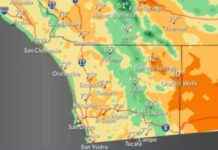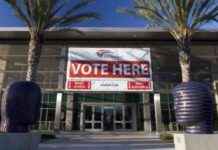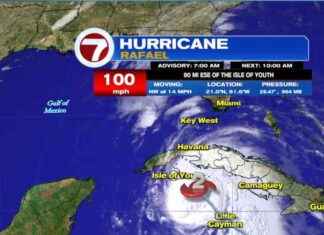“Any act of a person or group intended to propagate doctrines that attempt against the family, advocate violence or a conception of society, the State or the legal order, of a totalitarian nature or based on class struggle, is illegal and contrary to the institutional order of the Republic. Organizations and movements or political parties that, due to their goals or the activity of their adherents, tend to those goals are unconstitutional.”
Thus stated Article 8 of the Political Constitution of the Republic of Chile that the dictator Augusto Pinochet submitted to a referendum on September 11, 1980 and which entered into force on March 11, 1981, six months later, endorsing in turn for a term of eight years plus the government headed by the general who led the coup against the Executive of Salvador Allende in 1973.
It is the Constitution that is still in force in Chile after the non-population of the text presented by the current president, Gabriel Boric, despite the 60 modifications that it has undergone throughout its more than four decades, it has distorted the original spirit of the Magna Carta. , focused on the defense of the “traditional values” of the country and its rejection of “communist totalitarianism” to which, according to Pinochet himself, the Allende government was heading.
Hence, the speech that the soldier offered on the occasion of the entry into force of the text and his new mandate, that March 11, 1981, which we offer in excerpts, focused on the achievements of his Government, in particular in the eradication of the postulates of Soviet socialism of the previous Executive.
Unlike Boric, one of the champions of the new Latin American left, Pinochet won the constitutional referendum and the plebiscite for his government, even though the military regime never published its electoral roll. It was probably the same, however, as the plebiscite that was held in 1988, in application of transitory provisions 27 to 29 of the Constitution, to decide whether Pinochet would remain in power until 1997, although this time with the control of various parties that campaigned against the dictator.
This time Pinochet lost, with almost 56% of the votes counted against, which marked the beginning of an end accepted by the dictator himself. On this occasion almost two million more Chileans registered as voters than those who first endorsed the coup in 1978 and one million more than those who in 1980 endorsed the regime and the new constitutional text. Like now, Chile chose its destiny.
“On September 11, 1980, the people of Chile, freely and sovereignly, chose their destiny. Today, March 11, 1981, six months later, this same people crosses the threshold of a new political system, and it does so full of faith, hope and confidence in its future on this date that marks the beginning of the validity of a new Fundamental Charter, which launches the first presidential term that will be regulated by its rules.
”Both facts are, without a doubt, legal expressions of such importance that the entire nation stands up, with the recollection typical of the solemnity of an act that holds great significance in its trajectory as a republican country.
”Seriously wounded by the Marxist-Leninist ideology, the country suffered until 1973 the pain of seeing its children divided, who were dragged into the tragedy of a civil war. It was necessary to resort to all the reserves of patriotism in order, with the intervention of the Armed Forces and order, to prevent the fall into the abyss.
”More than seven years have passed since those painful days and Chile is once again the country open to the world and those dark days belong to the past today, but to a past that we must not forget. On the other hand, they have allowed us to return to reality and rediscover ourselves with the very roots of our idiosyncrasy as authentic Chileans and the creative spirit of its best times.
”Chile is the synthesis of many decades of struggle, efforts and efforts; of values ??lived and transmitted as an inheritance by each generation to the next; of harsh experiences assumed as tests of fate or as lessons from history. In short, there are so many achievements and so many facts that make up our civic heritage and our military glories, that make us feel proud of having been born in this land.
”Thus, since the dawn of our history, we have lived under the sign of Christian civilization, whose spiritual meaning has shaped the very soul of Chilean people. As reflected in our historical evolution, time has molded the personality of this nation with very defined traits.
“Among his other characteristics, his indomitable libertarian spirit stands out, incompatible with any form of tyranny or vassalage; a strong and impersonal acceptance of authority, which is both an effective dam against licentiousness and a guarantee of justice for all.
”A pure juridical sense, expressed in objective norms that oblige governors and governed alike; a stimulus to particular economic initiative, within a regime of private property of the means of production as irreplaceable instruments for the progress of the country, and a deep spirit of integration and solidarity, a sign of the profound social sense of a homogeneous race.
”All of the above has made it possible to forge a scale of values ??where merit, generosity and public spirit always prevailed over any material exteriority of lineage. These are, gentlemen, some of the dominant signs that make up our national being.
”Unfortunately, peoples, like human beings, sometimes drift along paths that distance them from their roots, forgetting that in these lies the only source of stable continuity and fruitful vigor for any nation that aspires to fully meet certain goals.
”In our country, a first symptom of this process was the weakening of presidential power, a power that is a symbol of that strong and fair authority that the Chilean people have sought in the face of fronds or oligarchies of the most varied kind.
”No one who analyzes the problem dispassionately will be able to ignore that the decisive responsibility for the breakdown of Chilean democracy is due to the uncontrolled power of the closed partisan or union oligarchies, and the growing excesses of certain press, all phenomena that have contributed to unhinging our public life. long before 1973.
”I dare to affirm that one of the greatest challenges that contemporary democracies must face is to know if they will be led by their governments and will be at the service of the common good or if they will be governed by the power of those oligarchies, before whose pressure the rulers often have to end bowing, thus opening the way to the most serious demagogic debauchery.
”That was the dilemma that those of us who had the responsibility to guide Chile’s destiny before presenting the new Constitution for the consideration of the citizenry raised ourselves.
”Our decision is clear and conclusive: political parties will continue to suffer restrictions of varying intensity or duration before full operation is achieved in their area of ??activity.
”I also want to make it absolutely clear that this operation will be achieved, as is already the case in the workplace, within legal schemes that exclude all forms of monopoly or uncontrolled power for those who exercise them.
”The depressing spectacle of the importance of the government to tend to the common good or of rulers who, previously in Chile and currently in other countries of the free world, must give in to the demagogic pressures of those groups, is something that in our country should not be repeated. never happen. The authority of the Government is involved in this.
”That is why, in the legal-political stage that begins today, we will not compromise on that for any reason: the government does not accept pressure from anyone!
”The years of demagoguery favored socializing statism, whose doctrinal conceptions stemmed from a deep distrust of the practical exercise of personal freedom and from the consequent belief in the supposed need to subject the economic and social action of individuals to all kinds of controls. and state regulations that, far from diminishing, were increasing inexorably and disproportionately.
“Thus, the purposes of justice and equity that such state interventionism proclaimed were distorted for the benefit of other power groups -now business and unions- that forced the transfer in their favor of franchises and privileges as arbitrary in their foundations as disastrous in their consequences. .
”It was those decades of demagoguery and socialist statism that eroded our political, economic and social life and prepared the onslaught of Marxism to directly try to transform Chile into a communist country.
”It is necessary to underline the intimate relationship of the three elements mentioned: demagoguery, statism and Marxism. Demagoguery stimulates statism, because the increase in the size and influence of the State facilitates the action of pressure groups, just as they wish.
“In turn, statism favors Marxism, by generating insufficient economic development and curtailing the real freedom of people, factors that are very useful in totalitarian pretensions. Hence, gentlemen, although what we understand by democratic socialism differs doctrinally from Marxism, in the end it is paving the way for it to advance and settle.
”The disastrous trilogy of demagoguery, statism and Marxism reached its worst extreme in our country when the latter achieved the government of the Republic and, in a thousand days of disgrace, violence and generalized chaos, placed the country on the very brink of civil war in its purpose of establishing by force the Marxist State and thereby ceding the sovereignty of Chile to Soviet imperialism.
”Many today have forgotten how during the Marxist government the most characteristic values ??of our nationality were threatened or mocked; the libertarian spirit was threatened by an imminent totalitarianism; strong, impersonal, and just authority had disappeared, giving way to anarchy; the legal sense was destroyed by a government that despised legality; our courts of justice systematically ignored their rulings; any particular economic initiative was suffocated by socialist collectivism.
”In 1973, the country presented a picture of economic chaos and disrepute of our currency, never seen before. That vocation of integration and solidarity of our people, demonstrated for decades, had been destroyed by hatred among compatriots, caused by an irreconcilable class struggle calculatedly fomented. The virtual destruction of the Chilean soul was the prelude to the final violent action that the Soviets were planning to end our sovereign existence.
”Faced with this political maelstrom, the people understood that it was urgent to put an end to the action of a government that had become illegitimate and anarchic. At that time, the country looked to its National Defense and Order institutions as the last bastion capable of avoiding the total destruction of the nation and they, faithful to their oath and their mission, liberated the homeland on September 11, 1973, from Soviet Marxism.
”On this solemn day, I want to remember with my heart and mind that historic date that the people of Chile played a leading role in, because the Armed and Order Forces are nothing more than its people in arms.
“I also wish to express, as a ruler and a soldier, that I will always keep in my memory the men who fought and fell on September 11. To them I pay emotional tribute at this moment. Thus, as the Government of the 1980 Constitution begins today, our gratitude and recognition go to them for their sacrifice, which has not been in vain.
”I could not finish these words without briefly pointing out the lines that this Government will follow and clarifying some concerns that could exist, since the double commitment that was contracted with the homeland in 1973, on the one hand was that of the economic and social recovery of the country and , on the other, that of the creation of a new institutionality that would be the global and creative response to the future needs of Chile, all of them framed in a new Fundamental Charter.
”For this reason, faithful to our Western Christian tradition, and as a nation that respects the law, in a free and sovereign plebiscite, we culminated this process on September 11, 1980. There, the new Political Constitution of the Republic was approved by an unquestionable majority. , which has been called the Constitution of Liberty.
”It is this political letter that comes into force today and that will be the fundamental legal basis that guides the Government’s action, by establishing a new, lasting and vigorous democracy in our country.
”It lays the foundations for a solid and progressive economic development, recognizes and guarantees the right to private property of goods and encourages the full development of private initiative in these matters.
”Likewise, I wish to highlight the fact that this Constitution seeks to prevent the political activity of doctrines that attempt against the essential values ??of our tradition or that promote violence and confrontation as a form of action.
“To this end, legal provisions have been enacted and will be enacted for ordinary and military justice, as well as rules of action that facilitate the actions of the security forces against violent activists, who have no other purpose than to frighten the citizenry, causing many sometimes innocent victims.
”Be absolutely sure that I will fight until I achieve the definitive eradication in my country of this scourge that affects contemporary society!
”Chilean men and women who are listening to me: the constitutional text that enters into force today is a transcendental work for the nation. His fidelity to national values, as well as the original and creative character that inspires him and that responds to the challenges facing contemporary society, are aspects whose magnitude makes it impossible to summarize them in a few words.
”The passage of time will allow its gradual and adequate application and, likewise, the full understanding of its deep commitment to the freedom of Chileans and the progress of the homeland. On this March 11, in which the entire country begins the new stage that this Fundamental Charter marks, I wish to reaffirm, with the greatest resolution and integrity, that we will continue the work begun in 1973 through the clear and precise channel that these regulations indicate. ”








